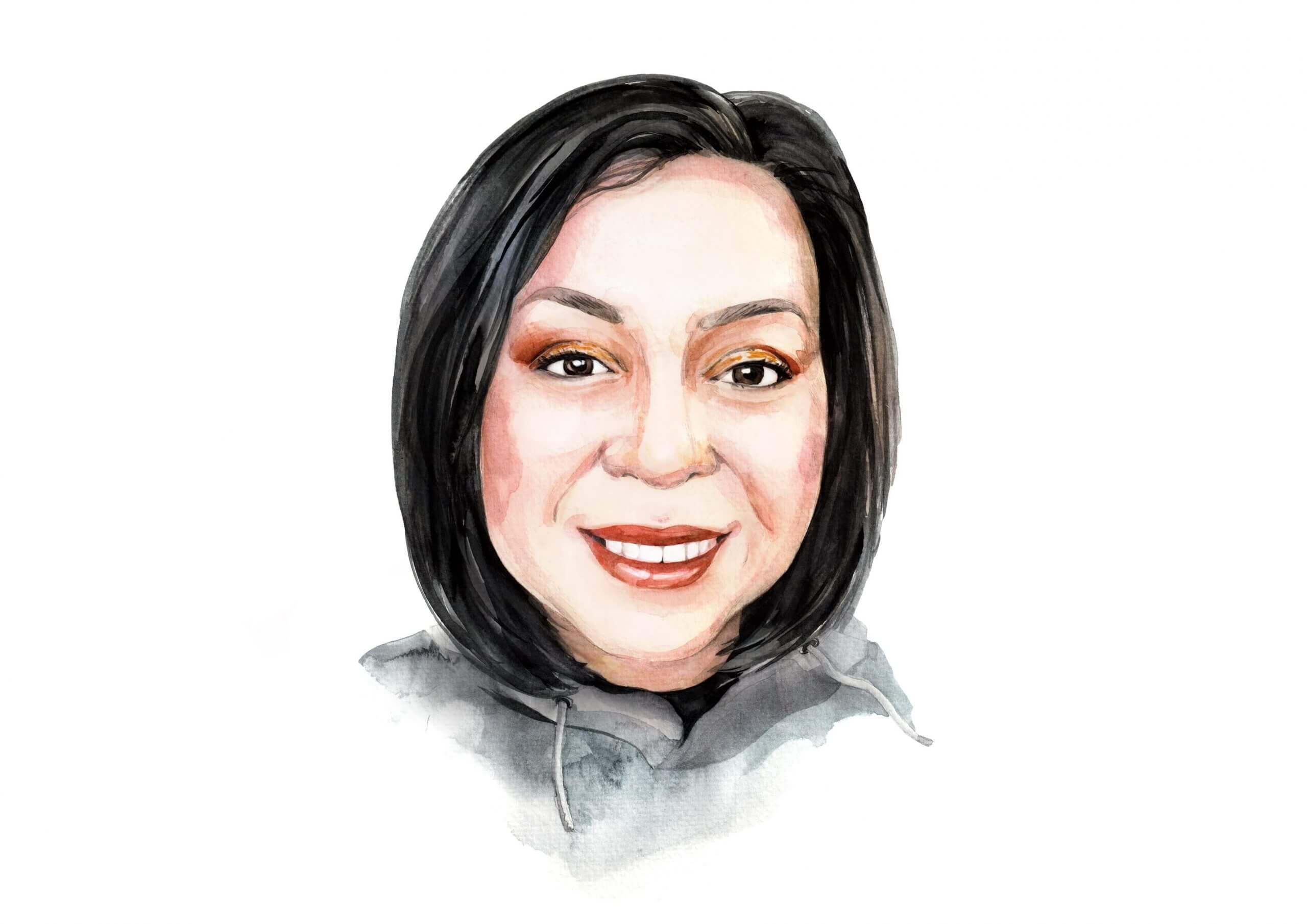
“I always knew I wanted to be a teacher because I wanted kids to have someone like them. I had always wanted a teacher that looked like me, that understood me more.” – Karina Vela
Representation in the classroom matters as it can help close the opportunity gaps for students of color. Far too often, students of color feel isolated, underrepresented or mistreated in schools. Research has demonstrated that Latino students who have a Latino teacher are more likely to have positive social and emotional experiences and want to take advanced coursework. The power of the presence of minority teachers in the classroom could be the difference between graduating and failing. For Karina Vela, an immigrant from Guatemala City, she knew what it felt like to not be white, and not be part of the mainstream, an experience that inspired her to seek out ways to help others and ensure they, too, feel like they belong.
Growing up in a first-generation immigrant family, Karina witnessed her mother’s work ethic. Her mother migrated with her grandmother from Guatemala to escape her father’s alcoholism. At the time, there was a Civil War and the United States government began granting visas to those fleeing war conditions. Unfortunately, Karina was not able to go and instead was flown to the border of Mexico and was smuggled into the U.S. to reunite with her mother when it was easier to do so. She reflects on the experience as a mother herself now and imagines the difficult and wistful goodbye it could be for any parent. “I was almost one and three quarters. And I just think about the reality, that’s how old Marcello is right now and having to pass off my baby to someone and handing over money and trusting that my kid’s gonna make it on the other side with all the trafficking that happens, it just terrorizes me.” Later, Karina would have to go to the Canadian embassy to get her legal status fixed. She became a citizen at the age of 18.
Upon arrival, Karina stayed in different relatives’ houses. Eventually, her mother, grandmother, uncle, and herself got an apartment in San Mateo, California. Her grandmother and mother were housekeepers. “My summers were spent between school, going to the Rec Center, good and bad babysitters and just watching my single mom and my grandma try to make it.” Her mother eventually went on to get her high school diploma, her degree at community college and stopped housekeeping. She got a comfortable job at a bank and eventually she ended up working for the county as a mental health caseworker. Karina remembers “It was a huge success for her(…) And with my uncle being an English language learner and going to the University of California, Davis first year out of high school the bar was set very high for me.”
While Karina knew immigrants and their children faced unique challenges and barriers in educational attainment and access she also recognized how important it was to get an education. “My grandma does not read further than second grade in Spanish. And my great-grandma didn’t read or write. (…) I knew that education was going to be the only way that I was gonna make it here in the US.” As a result, Karina was encouraged to try things that kids in her neighborhood and kids from her background did not have access to or did not know about. She danced at the recreational center and learned to play an instrument. “I never had very serious instruction, like private coaching or anything like that but I was kept busy. My mom encouraged that and she knew it was important for me. By the time I was in eighth grade, I had played four years of clarinet and most of the kids in my neighborhood didn’t come home with an instrument.”
In high school, Karina was in for a rude awakening. Her skills would be no match against the years of experience her new classmates at Burlingame had. “Every single kid had voice lessons and I didn’t know anyone and I had no idea on how to start. So I didn’t play the instrument.” Instead, she took college track classes with no extracurriculars to motivate her. Karina began to feel disconnected. In ninth grade, most of the kids she was friends with either transferred out, got pregnant or got sent to continuation school for kids who were considered at risk of not graduating at the normal pace. In 10th grade, “I got in trouble really fast because I had a boyfriend and I was hanging around other people that also felt disconnected. She cut school frequently and skipped school at her boyfriend’s home. She remembers “I messed up in 10th grade so much except for in English –– that I liked. I had failed every class my second semester that I was very close to being sent to continuation school.”
In her Junior and Senior years, Karina was dedicated to cleaning up her act, carving a path for herself to get to college, and finding a way to connect to her school community. “I mean, the reason why I hated it at Burlingame was that kids were very racist ––overtly racist. Kids wore swastikas and said stuff like head for the border and wore confederate flag shirts.”
Despite her challenges, Karina was able to find a connection with Mr. Burke, her English teacher. Mr. Burke went above and beyond to make sure Karina felt connected in the classroom. “In 1995, with a classroom with only two Latinas in it, he decided to have us read House on Mango Street.” He responded to her journal prompts and encouraged her to talk about her goals.
Karina was able to get her grades in order and went on to San Francisco state. “I thought I wanted to be an English teacher because that was the biggest connection I had and then I heard about the dance program. She majored in liberal studies and got her multiple subject BCLAD teaching Credential in liberal studies with an emphasis in Ethnic Studies and Dance Education. She finished college in six years as she balanced work and school full time. She graduated in 2003 and recalls “it was transformative.”
Karina got offered to teach at Fiesta Gardens International School as a head classroom teacher, but decided not to she wanted to teach dance. Instead, she decided to take a position being a parent liaison and teach dance in San Francisco. Karina is now a dance teacher for San Francisco Unified in the itinerant program. She teaches pre-K through fifth grade at five different schools. Karina teaches dances she loves to dance ranging from hip hop to jazz to Mexican folk dance.
She later got a job teaching at a high school in one of San Francisco’s most rigorous academic high schools. The job itself was like two full-time jobs, as her co-teacher and collaborator soon left partway into the school year. She worked endlessly during the school day without much chance for rest as she instructed dance. And then outside of the classroom, so helped launch successful productions for the students, which meant more hours with the students after school and on weekends for staging, practice, set and costume design, as well as just community and family maintenance of all her students. It was amazing and exhilarating to do this work, but also beyond exhausting. Coming home past 6 pm with her young children at home, and with a spouse that was also working full time, was not going to work long term for her. She left this job after some time and got a job teaching in San Jose, but would later return to teaching in San Francisco in the lower grades. She has found that in working with the lower grades, she gets the joy of teaching and bringing Latino culture to more spaces, but she also has a balance for her young children.
Karina’s story affirms the mounting evidence that being a child of immigrant parents is not easy and representation in the classroom truly matters. It creates a sense of belonging and supports a student’s academic and social and emotional outcomes and can even lead students to consider becoming educators themselves like Karina.
